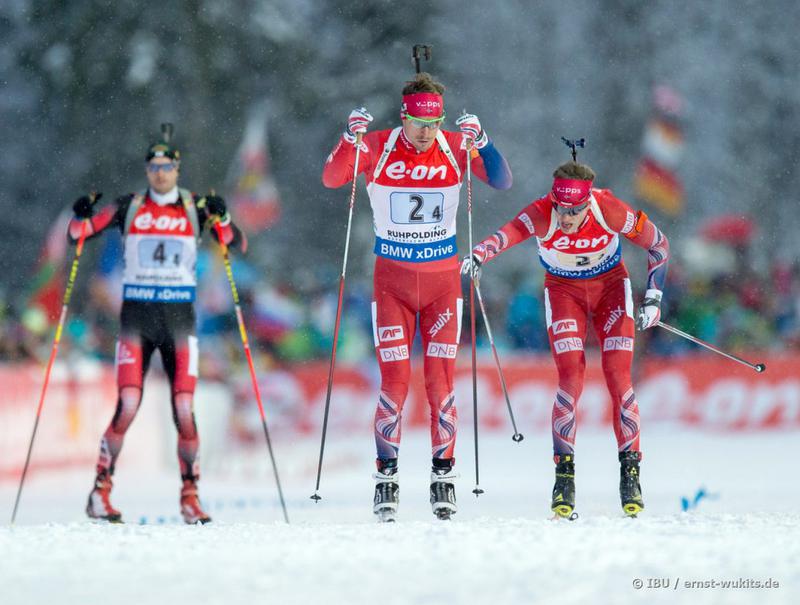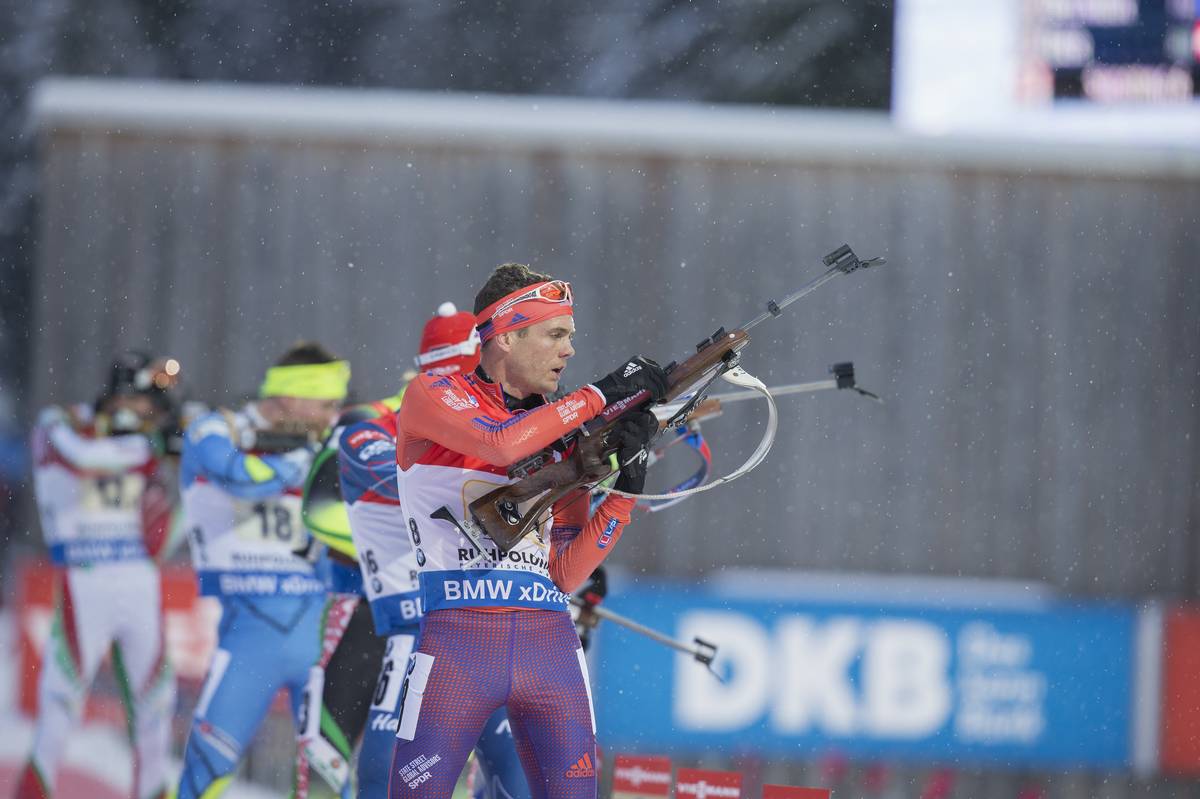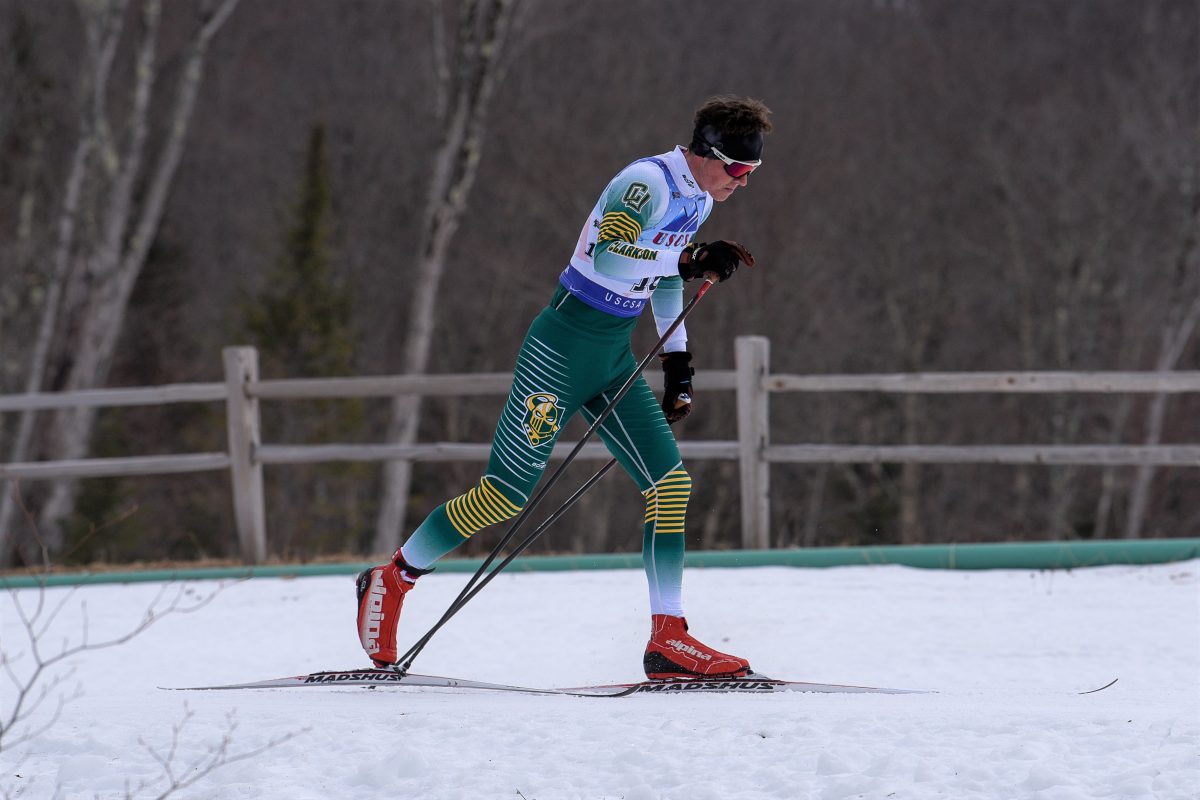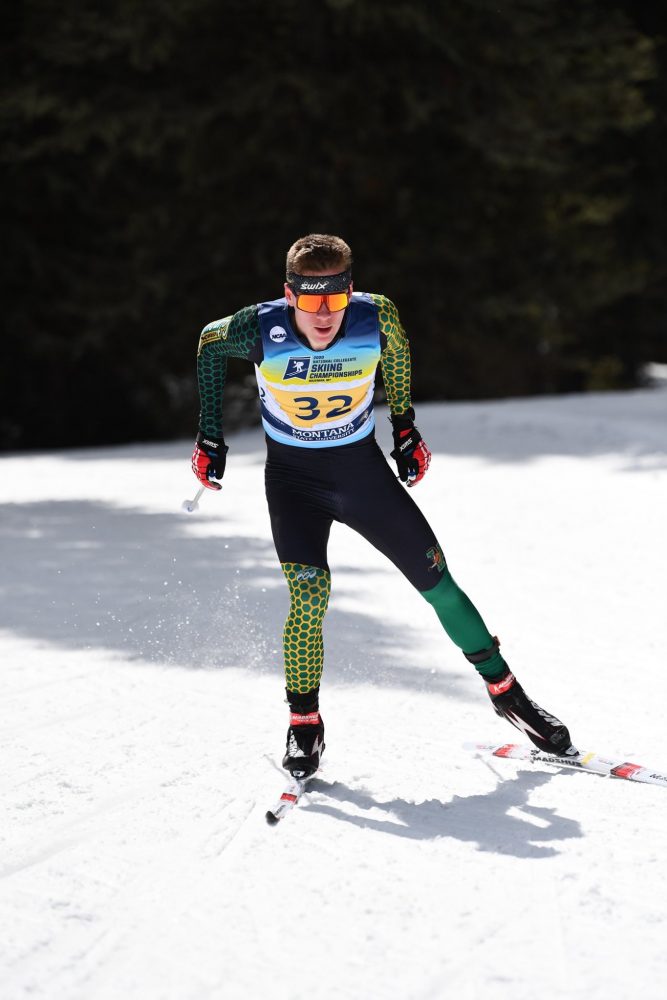
The U.S. men’s biathlon team notched a sixth-place finish in the 4 x 7.5 kilometer World Cup relay in Ruhpolding, Germany, on Friday, one of just a handful of top-six finishes over the last decade of international competition for the Americans.
And that was, said team member Tim Burke, despite the fact that “it wasn’t a really spectacular day for any of us.”
Sixth is the team’s best finish in three years, since the Oberhof World Cup in January 2013 where they finished fifth.
“I think the key for us today was to stay out of the penalty loop,” Burke said. “You look at a lot of teams and they had at least one penalty.”
The team’s eight spare rounds were far from perfect shooting, but on a windy day that was one of the better tallies in the field. After all, to do well a race in tough conditions, you don’t have to be perfect. You only have to be better than everyone else.

Just ask the Norwegian men. They won the relay by 14.6 seconds over Russia, and finished 2:31.1 ahead of the Americans – despite 12 spare rounds, or double their average for the last four relays.
“We won the relay, but we had a lot going on,” veteran Ole Einar Bjørndalen told Norwegian broadcaster NRK. “We’ll bet that the next relay gets even better. Johannes [Bø] had a fantastic stage. Tarjei gave a huge effort even though I’m below par.”
Bjørndalen suffered from five spare rounds and tagged off in tenth, almost 30 seconds behind leader Andrejs Rastorgujevs of Latvia. It was Johannes Bø, the second-leg skier, who shot perfectly and pulled the team into second. His older brother Tarjei had four spare rounds but was able to ski to a minute-plus lead over France.
Then, habitual Norwegian anchor racer Emil Hegle Svendsen faced some struggles on the range, using three spares across the two stages. But he still had a comfortable lead leaving the range the last time and took the team home for the win.
“I did not have to push that hard,” Svendsen said in the post-race press conference. “I tried to save some energy for the mass start tomorrow.”
For both the Norwegians and the Americans, the key was staying out of the penalty loop. Only the second-place Russians had anything resembling a normal relay score, with just six spare rounds. Yet they were unable to climb into the lead, as hard as anchor leg Anton Shipulin might try.
The third-place Austrians? Seven spare rounds, including one costly penalty loop by Julian Eberhard on the second leg.
“I just could not get my targets down in prone today,” Eberhard told Austrian broadcaster ORF.
France, in fourth place, had one penalty and nine spare rounds, finishing +55.9. Fifth-place Germany had a painful three penalty loops, all by Johannes Kuehn in his standing stage.

And then there were the Americans, solid in sixth.
“It was snowing and breezy, kind of off and on,” said anchor skier Sean Doherty. “Never gale force winds, but definitely wind where you had to read it and work with it a little bit.”
The team got off to a solid start with Lowell Bailey cleaning both prone and standing with no spare rounds. Besides being a sharpshooter in the windy conditions, Bailey also had the sixth-fastest course time of the field, and laid down the second-fastest closing loop to tag off in a strong third place, just four seconds behind Rastorgujevs.
“The pace was pretty quick right out of the gate so I tried to stay focused on staying in control and hitting my targets and trying to manage my energy to have something left for the last lap,” Bailey said in a U.S. Biathlon Association press release. “I lost a little bit in the beginning of the final loop, but I was able to gain most of it back by the tag. For some reason I just seem to do better on the second half of this Ruhpolding loop.”
Leif Nordgren used four spare rounds in the second leg, and the team moved to tenth. Burke was the next to take over.
“For me it was a solid race,” he said. “I got tagged around 10th or something. I felt solid on the ski course, and able to get through prone with no extras. Standing I used three extras, but stayed right in it. I kept in a position where Sean was able to make up a few spots.”
Doherty cleaned prone “from the clip”, then used a single spare in standing. That enabled him to move from eighth, where he got the tag from Burke, into sixth.
“I had a really solid anchor leg,” Doherty said. “That was just good shooting that allowed me to move up. I was kind of hanging in there on the skis not feeling like I’m in the sharpest shape right at the moment, but it was a great effort for the whole team. We really just had solid shooting and skiing for every one of us. Lowell opened up great and that set the momentum.”
While Nordgren said in the USBA press release that he was a “little disappointed” with his race, the other team members were pleased.
For Doherty, it was an improvement from the 20 k individual on Wednesday, where he placed 72nd and struggled with ski speed.
“I only got back to Europe on Sunday, so I wasn’t really feeling my sharpest for the individual, but it was important for my training overall and to get ready for this race and the other racing to come,” he explained.
Burke feels in shape and is waiting for his best races still to come.
“Ruhpolding has always been a struggle for me- I’ve never really done well here,” he said. “Antholz next week, that’s my favorite course on the World Cup. So I have been really targeting that one. Then from there I’m going straight to Canmore. I’ll spend a week there before the start of the World Cup to try to maintain the altitude from Antholz. I’m really excited about the end of the season- it’s all venues I really like to compete at. I feel like I’ve made it through the toughest part of the season for me, and now I’m ready to go.”
The Canadian team finished tenth (+3:12.4) after anchor leg Brendan Green moved them up and won a four-way sprint for the finish.
The team was in 17th after both leadoff racer Christian Gow and second-leg skier Macx Davies did their work. Scott Gow moved the Canadians up to 14th before Green closed the gap.
It was a different relay roster than usual, with Nathan Smith sitting out to rest for Saturday’s mass start. He is the only Canadian who qualified for the 30-man race.
“This season we have been able to take advantage of all five of our start quota, which gives us a few more options,” Green wrote in an email. “In this scenario it allows an athlete a bit more rest if they feel it’s needed.”
Green skipped the first weekend of World Cup racing in 2016 due to lingering back problems, but then placed 18th in the 20k individual and had another good performance on Friday.
“I think I managed my shooting well, and I was able to execute solid skiing with a strong last lap with just enough energy to take the sprint at the finish,” Green wrote in an email. “I’m feeling good at the moment and hopefully things can continue in this direction. My back is requiring constant attention (some days more than others), but I hope that I can carry on the season without any more problems and soon find a more long term solution to the pain. It’s frustrating and certainly not a good situation to be in, but I try and not let it get the best of me.”
Like the Americans, the team avoided the penalty loop, in their case using 11 spare rounds.
Chelsea Little
Chelsea Little is FasterSkier's Editor-At-Large. A former racer at Ford Sayre, Dartmouth College and the Craftsbury Green Racing Project, she is a PhD candidate in aquatic ecology in the @Altermatt_lab at Eawag, the Swiss Federal Institute of Aquatic Science and Technology in Zurich, Switzerland. You can follow her on twitter @ChelskiLittle.



